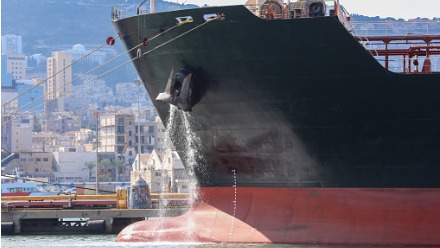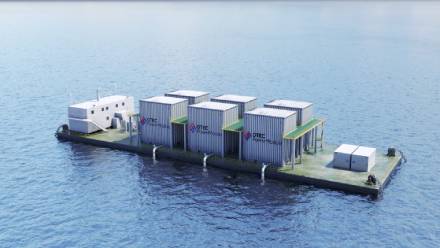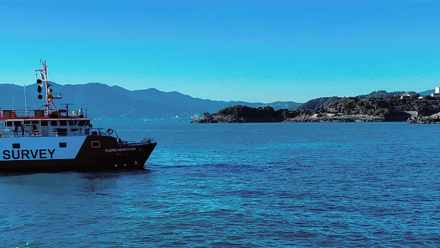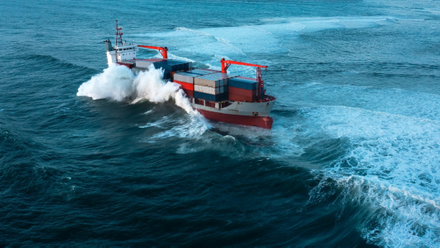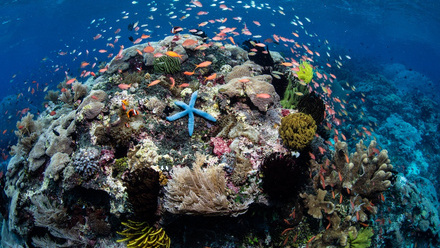Inclusivity key to improving the oceans
We speak to IMarEST’s first Ocean Decade Ambassador – and incoming IMarEST President Elect – Stephen de Mora about the recent UN Ocean Decade Conference.
The United Nations (UN) Decade of Ocean Science for Sustainable Development (otherwise known as Ocean Decade) was set in motion in 2021 with the broad aim of delivering ‘the science we need for the ocean we want’.
Rather like the UN’s Sustainable Development Goals, Ocean Decade has a series of 10 key challenges ranging from eliminating marine pollution and restoring ecosystems and biodiversity through to creating a digital representation of the ocean and improving humanity’s relationship with the ocean.
“The overall goal of Ocean Decade is really to understand the ocean and the ocean processes better than we have done, with a particular view to having better management strategies going forward after 2030,” says de Mora.
“Those strategies are really to protect the environment and to combat some of the deleterious changes that are going on, not just related to climate change but also due to things like plastic pollution. Climate change covers [areas] such as sea level rise, which leads to flooding and coastal erosion. Meanwhile, temperature rise results in coral bleaching, so we are at risk of losing coral reefs around the world along with the associated biodiversity.”
A key difference to similar initiatives in the past – and, de Mora says, there have been lots of them – is a far greater level of inclusivity.
“There is an emphasis on the training and participation of Early Career Scientists (ECSs), and we also now have social scientists involved. Ocean Decade actually gives junior scientists a voice that they never had in the past,” he enthuses.
“The other thing that is a major difference and a great change is the increased involvement of indigenous communities.”
That particular involvement was a notable element of the most recent Ocean Decade conference, held in Barcelona between April 10-12, where 1,500 people from across the world met to discuss important topics.
“Some of the most interesting aspects of the conference were the presentations from native Canadians and also Māori groups,” de Mora says.
“The stakeholder group for Ocean Decade has really been expanded and there is now an understanding that it’s not just scientists that are needed to tackle the ocean’s problems, because some of those problems are due to what we might call ‘bad behaviour’ and a lack of respect for local people.”
Because of this widening of input, Stephen believes there is some room for hope.
“Ocean Decade is different to what has come before. Scientists have always said they want more data, and they qualify that by saying they want it to be quality controlled, accessible, and they are looking for better contributions from industry. And then everybody wants more funding; more data and more funding is something that we always hear,” de Mora comments.
For de Mora himself, the clock has run out on his role as IMarEST’s Ambassador to Ocean Decade, although he will retain a keen interest in its work in his new role as IMarEST President Elect.
“I’m also a Sargasso Sea Commissioner and I finish with that this year as well; I expect to have a busy time working with scientists heading up IMarEST,” he states.
“One of the things that I will undertake is the science strategy. That will certainly involve continued oversight of our connections with the Intergovernmental Oceanographic Commission, the International Maritime Organization (IMO), and other organisations that we perhaps don’t have enough of a relationship with right now.
“Being involved with Ocean Decade was a really wonderful experience from a personal point of view. And, of course, I still have a passion for the ocean and trying to make the ocean right or at least better.”
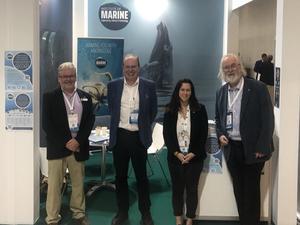
The recent Ocean Decade conference featured two plenary sessions each day – covering all 10 of the Ocean Decade challenges over the course of the conference – as well as multiple satellite sessions, poster exhibition and 36 exhibition booths, including one for IMarEST.
“IMarEST made a significant [impact] with its well-visited booth, which showcased the Institute's activities and enabled representatives to engage with visitors. Manned by de Mora, Ralph Rayner, Victoria Mentor, and myself, the booth served as a focal point for networking and discussions on marine science and engineering,” Head of Technical & Policy Peter Sheppard confirms.
“Throughout the conference, our booth attracted a diverse audience, including many Early Career Ocean Professionals (ECOPs) eager to learn more about IMarEST's activities and explore potential membership opportunities. We fielded numerous inquiries about our technical initiatives and the benefits from membership, which indicated a keen interest in the Institute's contributions to the marine industry and ocean science, and the value that the Institute can give to an individual.”
Express your interest in becoming the next UN Ocean Decade Ambassador.
Main image: a plenary session at Ocean Decade; credit: IMarEST
Inline image: IMarEST representatives at Ocean Decade; credit: IMarEST

